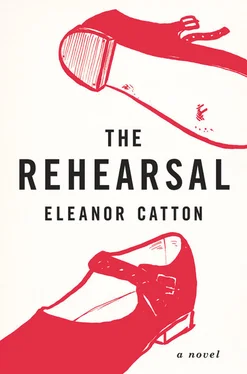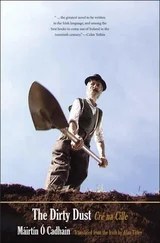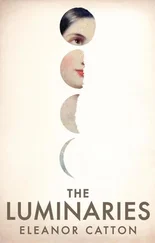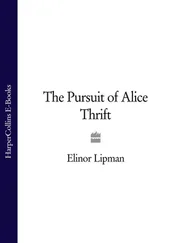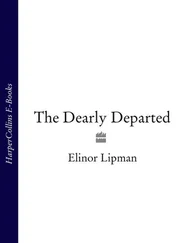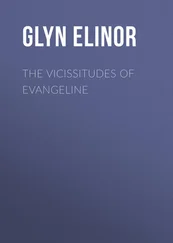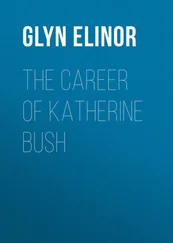All she has is one uncertain evening of stalls and snatches and trailings-off, a lone flare of something bright that sent her heart thudding and the blood rushing to the thin skin over the bones of her chest, and then days and weeks of lonely conjuring, a paralytic limbo of self-doubt which seems to shrink Julia to an impossibility, a freak, a daytime wander that recedes in the rear-vision mirror of her uncertain mind.
She thinks vaguely about how nice it would be to be persecuted. She thinks about the two of them parading in defiance in front of her parents, holding hands maybe. She thinks about watching her father pick at his red throat with his finger while he shakes his head and says, Issie, don’t close off your options, honey. You never know, it might just be a phase. She thinks about her mother—her shrug, her careful smile. She thinks about her sister, who would fall quiet and look across at them and watch Julia so cautiously, Julia who is properly her equal, her classmate, the girl she once scorned in the netball trials, the girl about whom she whispered once, Doesn’t she know what we all think of her? Surely she knows.
It would be nice, Isolde thinks, to know that you had become the image you created for yourself. It would be nice to have a reason to act broody and maligned.
Every one of Isolde’s choices is really only a rephrased and masquerading version of the question, What am I?
It will be this way for years to come.
Tuesday
Sometimes Julia is filled with a kind of rage at the fact of her body, the fertile swell of her hips, her cold freckled breasts, the twice-folded inner pocket of her womb. She doesn’t wish herself different, doesn’t crave a phallus or a mustache or a pair of big veined hands with calluses and blunted nails—she simply feels frustrated that her anatomical apparatus presents such a misplaced and useless advantage. If the other girl’s flushed and halting inclinations tend elsewhere, if Isolde does not seek a mirrored lover but a converse lover, a flipside complement of a lover, then Julia is lost.
Julia thinks, Seducing Isolde isn’t just a matter of behaving as attractively and as temptingly as possible, and trusting that Isolde will bite. If, instead, she were faced with the prospect of seducing a boy, then such a simple formula would probably work. The mere fact of Julia’s anatomy would be enough. She would herself be the temptation—her body, the whole of her. But seducing Isolde requires forcing the younger girl to come to regard herself in a new way: only after Isolde has come to cherish her own self, the concave yin of her feminine skin, will Julia have a hope. Isolde must come to cherish herself, first and foremost. The seduction must take the form of a persuasion, a gradual winning-over of her mind.
Julia thinks of all the usual gifts of courtship, like flowers in homeroom or stones thrown at her window at midnight or a patient watcher at the school gates, waiting with a bicycle to walk her slowly home. All of them seem grotesque. She imagines sending Isolde flowers in homeroom, and all she can think of is the girl’s horrified face as she peers over the lip of the red cluster of tissue, the card already plucked off in embarrassment and crumpled to a nub. She imagines a bouquet too big and too fragile to be shoved into the bottom of Isolde’s bag, and the beautiful girls all laughing and shouting, What’s his name?
Julia is overcome by a fit of melancholy now, and drives her pen savagely through the margin of her homework sheet, causing the paper to rip. She thinks, What’s the likelihood? That the one girl who makes my heart race is the one girl who wants me in return? That the accident of my attraction coincides with the accident of hers? She thinks: can I trust in something chemical, some scent or pheromone that will ride on the current of my walking and come to kiss her as I pass her by?
Julia distrusts this chemical, this invisible riptide that sucks away at all her shores. She thinks: I cannot rely on the chemical. I cannot rely on the accident of her attraction. I must seduce her, actively pursue her and persuade her. I must appeal to the questionable autonomy of a teenage girl whose mind is still not rightfully her own.
Tuesday
“Hey Isolde, want to play?” someone calls out, and Isolde looks up. She is walking back from the tuck shop with a brown paper bag pinched in each hand, the icing slowly leaking through the paper and darkening the pale in greasy spots of gray.
“No, thanks,” Isolde says, and holds up the paper bags as an excuse.
The questioning girl smiles and returns to the game. Isolde watches as she walks past: four or five of them are attempting to play hacky-sack in their thick-soled school shoes and drooping gray socks, hiking up their school skirts with both hands to show the winter white of their dimpled knees. She rounds the corner of the school library and continues on.
Isolde weaves her way around the groups of girls sitting in their impenetrable circles around the quad, and then to her surprise she sees Julia sitting in a rare patch of sun on the grass on the far side of the paving. She is wearing her headphones and squinting in a cross kind of way into a paperback novel. Shyly Isolde makes her way toward her. Her heart begins to hammer.
Julia looks up, sees her approaching and tugs her headphones out of her ears.
“Hey man,” she says, and Isolde waves her paper bags and says, “Hey.”
“What have you got?” Julia says.
“Just a roll and a doughnut.”
“You can sit down if you want.”
Isolde crosses her legs at the ankle and descends into a sitting position in the fluent scissor-action of girls long practiced at sitting cross-legged, her free hand tugging at the doubled fold beneath the silver kilt-pin so it covers the bare skin of her knee. Julia shifts her ankles to make room. The horizontal gash along the length of Isolde’s filled roll is stained pink from the beetroot. Isolde wipes her finger along the seam to collect the mayonnaise and licks her finger carefully.
“You know what I think is shit?” Julia says suddenly, arching her back and reaching over to yank a tuft of grass from the ground to shred. “That they make you come to those counseling sessions about self-defense or teacher abuse or whatever.”
“But I’ve learned so much,” Isolde says, blinking. “Like my body is a temple. And we were all abused as children probably; we only need to work hard to remember it.”
Julia laughs and shreds her grass even smaller.
“But you were brilliant,” Isolde says. “Standing up to him like that. Like you did.”
“He’s scared of me now.”
“So is everyone, after what you said,” Isolde says, meaning it as a joke, but Julia frowns and shakes her head.
“I was paraphrasing, anyway,” she says. “It’s not like I made it up. Dumb shits. Not you.”
“Oh, no,” Isolde says quickly. Her nervousness has given way to a kind of giddiness, a reckless charged feeling that is keeping her heartbeat in her throat and her vision sharpened in awareness of Julia’s total proximity, the fall of her hair around her face and the every movement of her hands as they pick away at the yellow balding patch of lawn. Julia’s hands are thin and reddish, with nibbled patches of dark nail polish in the center of each flat-nibbed nail. She has a few loops of dirty string knotted around her bony wrist, and on the back of her hand a few notes to herself in blue ink, several days old now so the ink has furred out into the web of tiny creases on her skin. Even looking at Julia’s hands seems unbearably sensual to Isolde, and she quickly draws her gaze away, out across the quad where a group of girls are clapping a rhythm as they rehearse a set for the school dance challenge.
Читать дальше
